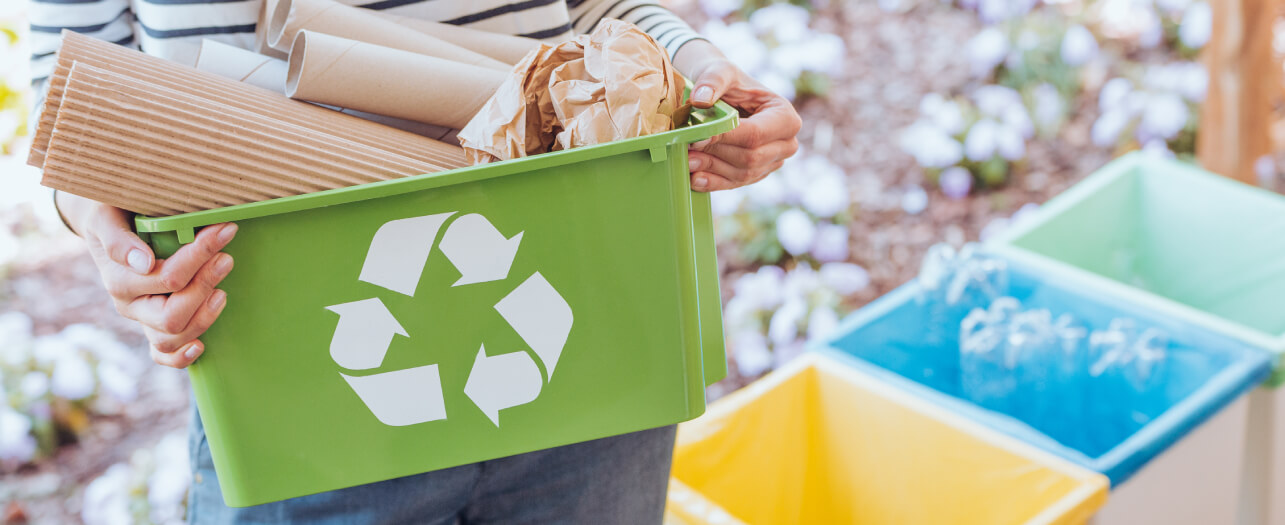The world is increasingly moving towards sustainability as the threat posed by the climate crisis looms. Because of this, more and more schools around the world are investing in recycle bins. However, there’s more to this recent trend than meets the eye. It isn't just about keeping classrooms tidy or saving efforts and resources on waste management and labour. It's a deliberate shift towards environmental responsibility and fostering a generation of eco-conscious citizens. There are many reasons schools are investing in a circular economy, and a lot of them have to do with securing future generations and building a livable world for these generations to come.
Educating students and future generations on the value of sustainability
Value education is an important facet of the education provided by schools and inculcated among their students. This is one of the foremost reasons schools are investing in recycling programs. Children go to schools to learn and understanding the way the world works is a major aspect of this. The climate crisis has raised the issue of sustainability on a global scale and it is important to inculcate values among the future generations to address this issue. Schools consider it their responsibility to teach children these values at early stages in their lives so that they carry them into their lives.
Recycling programs provide ready access to tools such as recycling bins and plastic recycling machines, building a culture of waste management and encouraging the global circular economy.
Reducing the waste management burden on financial and human resources
Schools cater to hundreds, if not thousands of students and are expected to invest in efforts such as cafeterias, sports and culture clubs. These efforts generate large volumes of waste, from cafeteria leftovers and paper scraps to used printer cartridges and broken electronics. This, in turn, forces schools to invest in labour and waste disposal efforts. Additionally, landfilling this waste contributes to environmental degradation. A robust recycling program can significantly reduce the amount of waste sent to landfills, leading to both environmental and financial benefits. Recycled materials can be transformed into new products, minimising the need for virgin resources and reducing the school's environmental footprint.
In addition to this, selling or donating recyclable materials can generate revenue, which can be reinvested into educational resources or further sustainability initiatives. This creates a positive feedback loop, where responsible waste management translates into financial savings and educational enrichment.
Encouraging community engagement and fostering collaborative responsibility
School recycling programs go beyond individual actions; they cultivate a sense of shared responsibility within the school community. Students, teachers, administrators, and even parents can all participate in the program, fostering collaboration and teamwork. From organizing awareness campaigns to conducting waste audits, everyone can play a role in ensuring the program's success.
A sense of shared ownership and responsibility fosters a sense of community, where everyone feels invested in reducing waste and contributing to a cleaner environment. Additionally, recycling programs can spark important conversations about environmental issues, prompting students to become active advocates for change within their communities.
Challenges and Considerations: Building a sustainable ecosystem
While the benefits of school recycling programs are undeniable, implementing and maintaining them effectively requires careful planning and ongoing effort. One key challenge is ensuring proper education and awareness about what can and cannot be recycled. For instance, children need to be taught that recycling shredders are meant for materials like paper. Contamination with non-recyclable materials can significantly hinder the program's effectiveness and incur additional processing costs.
Additionally, securing adequate funding for infrastructure, transportation, and educational resources can be an obstacle. Equipment like recycling balers can be expensive investments. However, these challenges can be overcome through partnerships with local recycling facilities, waste management companies, and community organizations. Collaboration with parents and teachers is also crucial for ensuring program sustainability and long-term impact.

A platform for enabling positive change
Schools investing in recycling bins are not simply disposing of waste but investing in the future. By educating young minds, reducing their environmental footprint, and fostering a collaborative spirit, these programs are creating a ripple effect of positive change.
From classrooms to communities, and ultimately to the planet, the impact of these small, colorful bins is far-reaching. As the world navigates the challenges of environmental sustainability, schools hold the potential to be powerful agents of change, empowering the next generation to build a future where responsible waste management and environmental stewardship are not just practices, but deeply ingrained values.


